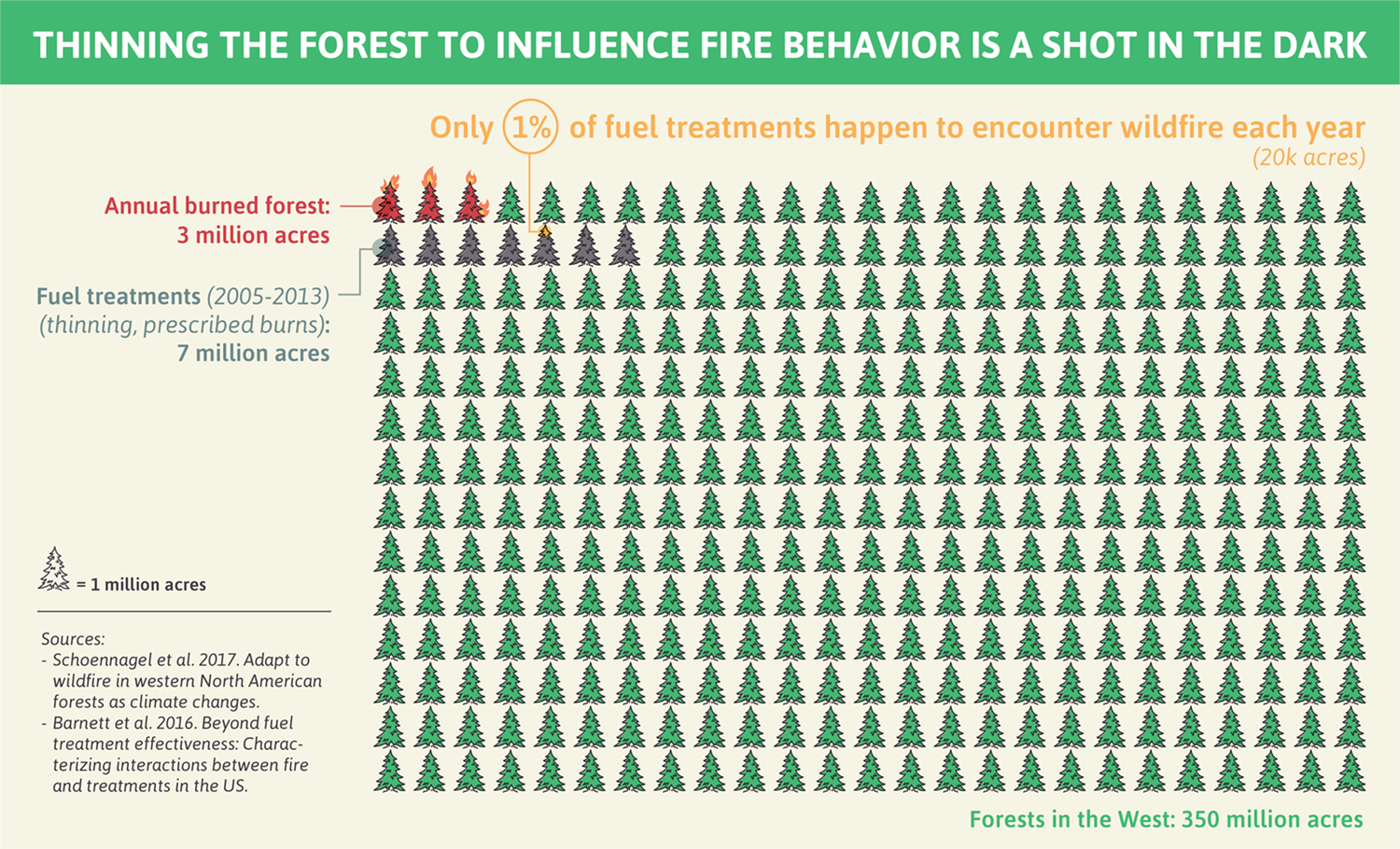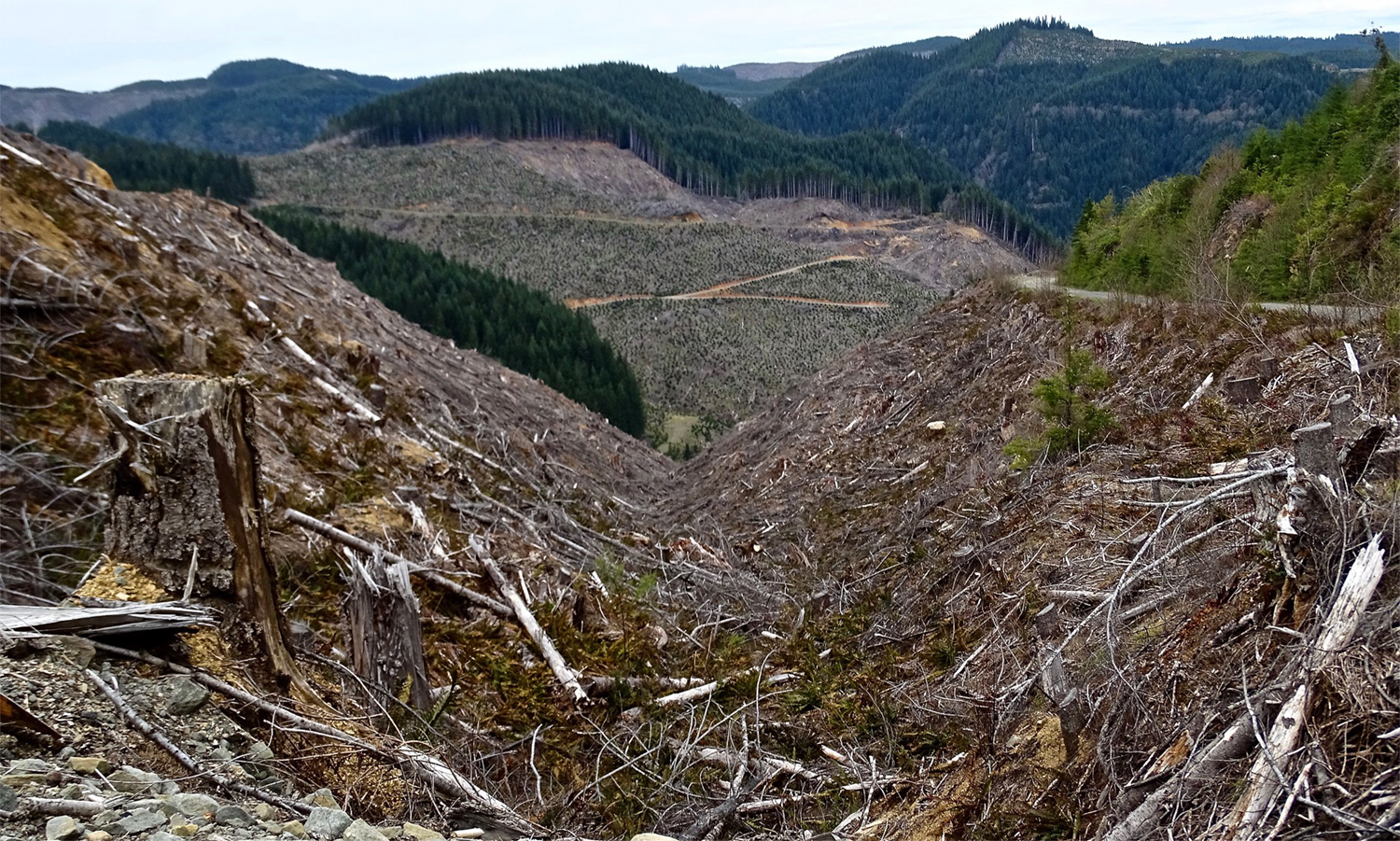A Recap of What Went Down This Legislative Session
by Alexander Harris, Forest Policy Consultant for Cascadia Wildlands
Last week, the Oregon Legislature ended its short session early, lacking the requisite number of legislators to pass any of the bills being considered. Two weeks prior, Republican members of the State House and Senate fled the state Capitol in protest of a cap & trade proposal being advanced by the Democratic supermajority, stalling all pending legislation and launching the Capitol into political turmoil.
The walkout marks the third time in the past year that Republican legislators have neglected the core responsibility of their public service – showing up to legislative session – in an attempt to thwart the quorum Democrats need to pass legislation. The temper tantrum, which began February 24, effectively ended the 35-day session two weeks early and denied Democrats the opportunity to pass not only the climate bill, but also bills addressing wildfire risk (see below), flood assistance, and more.
To add to the political drama, Republican obstructionism also endangered a historic agreement between Oregon’s largest timber corporations and conservation groups, resulting in a rare rift between the GOP and logging interests. Republican opposition to the climate bill was bolstered by Timber Unity, the front group funded and organized by logging interests; however, the walkout that ensued ended up undermining the timber industry’s chief priority this session by threatening the viability of the timber-conservation deal (read more below). This development is quite ironic due to the fact that timber corporations literally bankroll the campaigns of Republicans in Oregon’s legislature.
The sudden end to the legislative session leaves a great deal of uncertainty for the months ahead and sets the tone for what is expected to be a major year in American politics.
ONCE AGAIN, OREGON FAILS TO PASS CARBON REGULATION

Image of a devastating salvage-logging clearcut. Salvage-logging, or post-fire logging, releases carbon into the environment, harms the ecosystem, undermines recovery, and increases fire risk. Through slow decay, standing dead trees that remain after a fire provide the very nutrients needed for the landscape to recover. Post-fire logging cuts down the large trees and sometimes leaves behind smaller ones (unlike this photo where the entire area was stripped bare), and often involves planting dense rows of resinous saplings that can further increase fire risk.
The most high-profile bill this session, SB 1530, aimed to create a market-based cap & invest program known as the Oregon Greenhouse Gas Initiative (OGGI). Environmental and social justice activists have advocated for a statewide carbon program for years, prompting Democrats to prioritize passing a cap & trade program this short session over all other bills; however, as the legislative session approached the bill was increasingly watered down in an effort to keep Republicans at the table (and in the building), leading dozens of organizations to refrain from endorsing the legislation. If you can believe it, the timber industry won over the key Democrats in Salem and succeeded in exempting logging in Oregon from the cap & trade legislation, even though logging is a leading source of carbon emissions in the state.
The most concerning provision in the climate bill proposed allocating a quarter of the all OGGI revenue to fund the Oregon Department of Forestry (ODF) to conduct a landscape-scale thinning program, largely targeting National Forests and other public lands. Using cap & trade revenue to fund broadscale thinning seems to ignore the scientific literature about how aggressive thinning programs release far more carbon into the atmosphere than wildfires do as well as increase the severity of future forest fires. Cascadia Wildlands and partner groups have repeatedly advocated for wildfire funds to be allocated towards strategies that bolster community resilience and preparation rather than thinning over vast landscapes. (Watch Sam Krop, Grassroots Organizer for Cascadia Wildlands give testimony on this topic: video available below, or HERE – timestamp: 1:40:47.) The irony with this provision of the OGGI was thick — use monies from cap & trade legislation to fund extensive carbon-emitting logging across Oregon’s forested landscape.
OREGON ASSERTS NEW ROLE IN MANAGING FEDERAL LAND
The other major priority for legislators this short session was to pass comprehensive wildfire legislation. Each of the wildfire bills proposed this session were based on the recommendations developed by the Governor’s Wildfire Response Council, which released a report in November 2019. Many of the Council’s recommendations were encouraging, especially those focused on making communities more resilient to future wildfires – others, however, urged state lawmakers to double down on the 20th century strategies that are proven to be costly and ineffective (e.g. increased logging and fire suppression).
The Council’s most controversial (and expensive) recommendation was for an unprecedented, landscape-scale thinning program meant to disrupt wildfire behavior. The program – estimated to cost $4 billion – would greatly expand the role that the Oregon Department of Forestry (ODF) plays in managing our National Forests, and would authorize thinning vast swaths of Oregon’s forested landscape. Sure enough, the proposal to adopt a landscape-scale thinning program showed up in legislation this short session, recommending that ODF “treat” one-tenth of Oregon’s entire landbase!
In preparation for the session, Cascadia Wildlands helped lead an informal coalition of climate, social justice, and conservation groups to advocate for wildfire funds to be allocated towards community adaptation and resilience measures instead of thinning efforts in the backcountry on public lands. On the first day of session, Cascadia Wildlands joined 18 other organizations around the state in a letter to legislators advocating for wildfire policy to adhere to the latest science. In our letter, we wrote:
Scientists predict that the coming decades will bring more climate change-driven wildfires in Oregon’s forests. Therefore, we must prioritize policies focused on community adaptation rather than futile attempts to modify fuel conditions and control fire behavior across the entire landscape.
Experts have found that the three most effective strategies to protect homes and communities from wildfire are to: 1) retrofit homes with fire-resistant materials; 2) maintain defensible space within 100 feet of structures; and 3) limit new development in fire-prone areas. This approach differs starkly from landscape-scale thinning efforts, which are proven to be expensive, ecologically destructive, and ineffective at controlling wildfire behavior. Currently, government agencies spend millions of dollars logging to reduce fuels, yet data from the Forest Service shows less than 1% of thinning projects encounter wildfire each year, simply because our forests are vast and we cannot predict where fires will burn next. Thinning efforts should instead be focused on the forests directly adjacent to homes and communities where they can actually help enhance public safety.

The forests of the West are vast and it’s impossible to predict where fires will burn next. Researchers have found that less than 1% of thinned areas actually encounter wildfire each year, which means that the vast majority of thinning treatments are ineffective at influencing fire behavior.
Read our new factsheet to learn more about which strategies researchers say work best in protecting people and property from wildfire risks.
Over the last few weeks, several wildfire bills were wrapped into one large bill, SB 1536. Unfortunately, almost all of the adaptation measures we advocated for were dropped; however, due to our coalition’s efforts and the strong leadership of Senator Jeff Golden (D-Ashland), we were successful in striking the landscape-scale thinning program from the final bill. Instead, the bill includes a much more narrow and focused approach to reduce fuels by authorizing demonstration projects in strategic locations. These demonstration projects are meant to help inform state legislators and ODF about where thinning makes sense (and where it doesn’t), as well as how the state can expand its use of prescribed fire. The bill also includes many sideboards to keep commercial thinning out of the ecologically sensitive areas, although many notable exceptions remain.
Rumors of a special session are circulating around the Capitol, which means this bill actually has a chance of passing this year. If this happens, Cascadia Wildlands and partner groups will launch an extensive monitoring campaign to ensure these fuel reduction projects stay out of older, native forests and instead target the areas that pose the greatest risks to homes and communities – such as even-aged plantations and fire-suppressed stands near where people actually live.
FOREST WATERS BALLOT INITIATIVE – THE ROAD AHEAD
The Republican walkout derailed a variety of other important legislation, such as the aerial spray reforms agreed to by conservation groups and timber companies last month. The Memorandum of Understanding (MOU) – signed by two dozen conservation organizations and logging companies on February 10 – initiates a longer term process to enact comprehensive, science-based reforms to Oregon’s logging laws; however, the entire deal hinged on the legislature passing a bill this session to modernize aerial pesticide spraying laws.
With the legislative session now over, much remains uncertain about the future of this bill or the fate of the larger deal. The impetus behind the deal was the introduction of ballot initiatives by a statewide coalition of concerned communities and non-profit groups to greatly expand protections for Oregon’s forested watersheds. The growing “Forest Waters” movement around the state led the timber industry to propose their own counter ballot initiatives – which eventually prompted negotiations to scrap the initiatives and develop the MOU.
If the legislature is able to pass the aerial spray legislation during a special session – which is a viable possibility – the MOU will likely move forward as planned; however, if Republican obstructionism prevents bills from passing during a special session, conservation groups and frontline communities may well return to the original strategy of running a grassroots campaign to collect signatures and build awareness for a ballot initiative.
None of this progress would be possible without the grassroots support from activists and public lands defenders around the state. Thank you for staying active in all these efforts. Your voice matters even during these otherworldly political times, like when our lawmakers can walk off the job whenever they want to. Let’s keep our sleeves rolled up for what is likely to be one of the most consequential years in decades. Oregonians are demanding clean water, safety from wildfires, and expanded protections for our public lands – we won’t quit until systemic change is realized!

